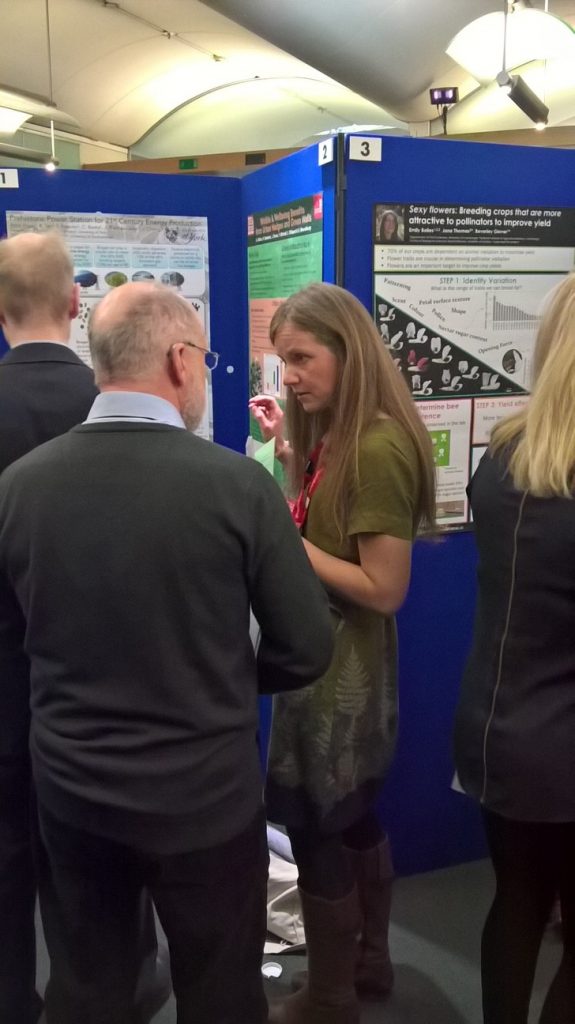On Monday the 12th of March I was lucky enough to go to the STEM for Britain awards in the Houses of Parliament, London. This was an event with the intention of facilitating young researchers to share their findings with members of parliament and leaders of scientific organisations and other research institutions with the hope of influencing policy makers by providing information with real scientific evidence to back it up.
It was very exciting to apply for such an important award and a lot of thought was put into just what to include in the submission. We decided that we would include the work of other researchers at our university who had looked into green infrastructure within the green wall centre, as this would allow us to portray a wider picture of the benefits offered. The title had to be topical and something that would have meaning and relevance to the non-scientific community. So, we went for ‘Wildllife and Wellbeing Benefits of Urban Hedges and Green Walls’.
Once our abstract was submitted it seemed a long few months until the end of January when we would find out whether we had been successful or not. On the very last day of January I received an email to say that I had been successful and was invited to present a poster of our work in the houses of parliament! Yay!
After this initial excitement had died down it was then time to produce the poster. This takes a lot longer than you expect! It was also a challenge as to how to portray the information in a way that an interested lay person would understand, as this was the criteria. Normally you are trying to be as scientific as possible but it was good as it made me think about what the key messages were and how these relate to our daily lives.
The big day arrived, and we had the long train ride to London. On arrival to Portcullis House we swiftly passed through the airport style security and had an apprehensive wait before we were allowed into the exhibition room. Once inside we positioned the poster amongst the excited crowds of researchers, judges and representatives of supporting organisations. The next few hours were adrenaline fuelled and we were able to explain our research to the judges as they visited our posters to find out more. Members of parliament popped in to discuss the research with the researchers from their constituents and pose for photographs.
I feel that opportunities to share our research with policy makers are all too important and I hope that there are more events in the near future in which to do so.
Elle Atkins
PhD student, Department of Biological Sciences

